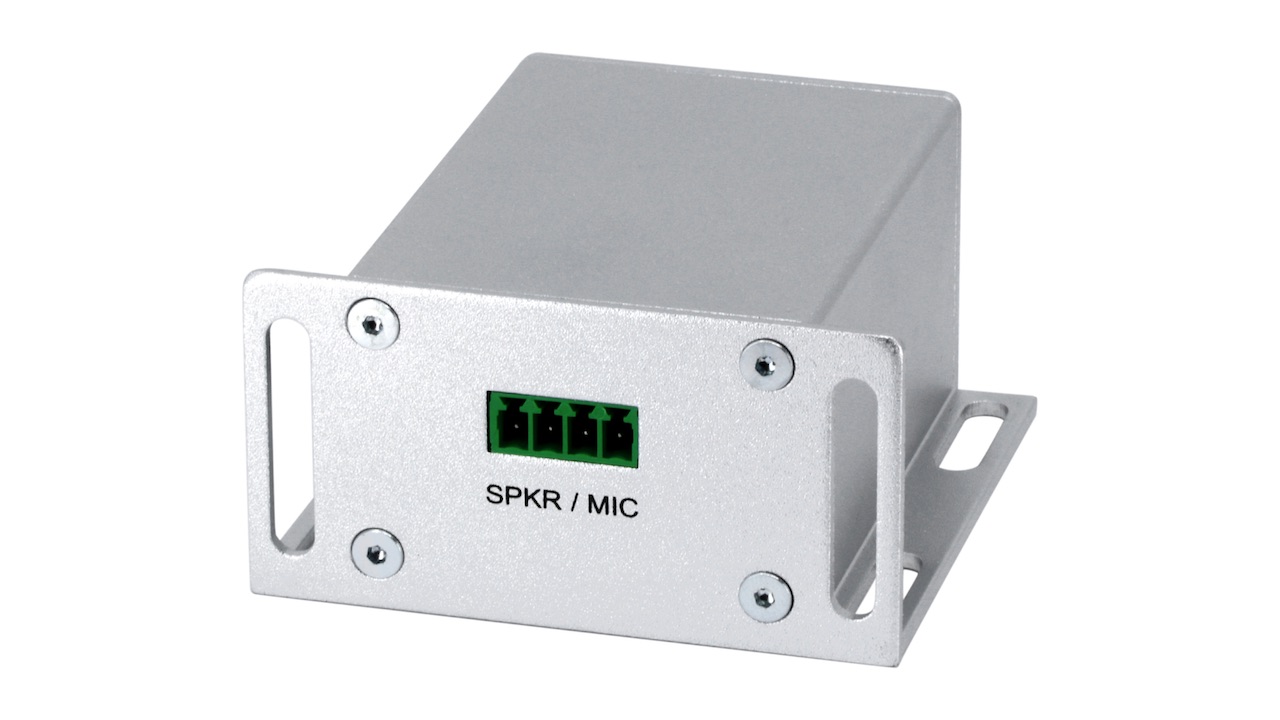The What: Barix is now shipping its IP Former for transforming analog loudspeakers into networked IP speakers.
The What Else: Replacing the 70/100V transformer traditionally used with analog loudspeakers, IP Former adds IP networking capabilities to new or existing speakers. It provides an IP network interface, audio stream decoder, and amplifier front-end for a 2- to 8-ohm speaker, with power supplied over PoE for streamlined cabling and installation. Current analog speaker installations can be retrofitted by simply switching their transformers with IP Former units, maximizing the lifecycle of customers’ existing investments.
Related: The Technology Manager's Guide to Networked Audio
IP Former is well suited for bringing IP capabilities to applications ranging from background music and in-venue announcements to paging and emergency warning systems. The flexible device decodes audio streams delivered via HTTPS, RTP or UDP in codec formats including PCM, AACplus, MP3, Opus, G.711, and G.722. SIP negotiation provides compatibility with VoIP phone systems and enables each speaker to be addressed individually, while pre-recorded messages can be stored within the device for fast playout. Native support for the Singlewire’s InformaCast and Syn-Apps’ Revolution platforms enables speakers equipped with IP Former to integrate as endpoints for the popular mass notification solutions.
Built on Barix’s programmable and secure IPAM 400 IP audio module, IP Former can be extended with new or custom functionality, providing future-proof flexibility. The solution's standards-friendly, open architecture enables it to integrate into multi-vendor environments.
“Many end-customer projects include advanced IP audio features among their requirements, but they already have perfectly good analog loudspeakers in their facilities,” said Davide Nossa, product manager, Barix. “IP Former lets integrators and systems designers simply upgrade those existing speakers with powerful IP functionality, saving the customer significant money compared to new speakers while avoiding the environmental impact of discarding the old ones.”
The Bottom Line: Enabling upgrades of existing audio deployments to support advanced IP functionality, the new module lets systems integrators and installers offer customers a digital audio environment without jettisoning their current speakers.
